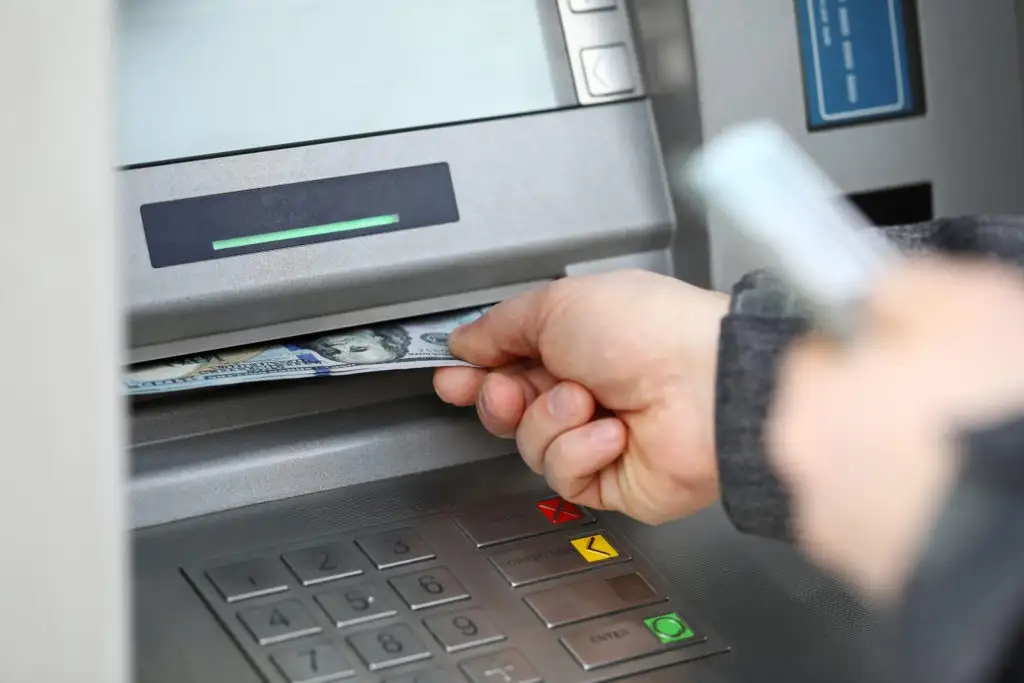Preparing for a trip, especially a big international journey, can be hectic. Important things can get lost in the shuffle—omissions that could ruin your plans if you’re not careful.
Start planning well in advance by making a checklist of things you need to do (along with deadlines) so you can make sure they’re done with plenty of time to spare. Some things, like vaccinations or passport renewals can take months to complete, so you’ll want to start early.
Don’t forget to take care of these 11 important things before your next trip abroad.
Notify Your Bank/Credit Card

Imagine landing at the airport and trying to take local currency out of the ATM, only to get a “card declined notice.” That will quickly put a damper on your trip as you’ll have to spend time calling your bank to get your card functioning.
Many banks and credit card companies will automatically lock your card if you start using it abroad—unless you’ve notified them of your travel plans in advance. You can generally go online and request a travel notification to be added to your account, where you can let the bank know your itinerary so they won’t view your transactions as suspicious.
Some credit card companies, like Capital One, no longer require a notification while traveling due to new chip technology—but be sure to check with your specific card provider before traveling.
Check Your Cell Phone’s International Plan
Planning on using your phone abroad? Check your plan to see what options are available for international usage so that you’re not surprised with a huge bill for roaming charges when you return.
If plans are expensive, consider getting a SIM card to swap out at your destination so you can still use your phone. Or, think about switching to a cell phone carrier like T-Mobile, which offers free international roaming on most plans.
Check the State Department’s Travel Warnings Site

Learn about any potential dangers at your destination by visiting the US State Department’s Country Information website. Here, you’ll be able to search by country and see any travel warnings and alerts for your trip. The site will also provide you with the location of any US embassies in the country (worth saving to Google Maps on your phone), important information on local laws and customs, emergency phone numbers (save to your contacts on your phone) and details on road and aviation safety.
While you’re on the State Department’s website, you should take a few minutes to sign up for the Smart Traveler Enrollment Program. This free service will send you alerts about any safety issues, and will also help the US embassy contact you in case there’s an emergency while you’re abroad.
Check the CDC’s Destinations Page
Visit the US Centers for Disease Control and Prevention (CDC) Destinations page well in advance of your trip. You can search by country and view travel health notices for any outbreaks or health issues at your destination.
This website will also show recommended (and required) vaccinations for your trip. Some vaccinations must be done weeks or months before traveling, so you’ll want to check this page as soon as you book your trip.
The CDC also offers country-specific “healthy travel” packing lists with recommended prescriptions, over-the-counter medications, and other important supplies to bring.
Confirm Visa/Entry Requirements
You don’t want to find out when you’re checking in for your flight that you need a visa or COVID test to travel. Check the State Department’s country-specific sites to find out entry requirements as soon as you book your flight, as visas can take a long time to process.
Many countries require travelers’ passports to have at least six months validity to enter. You may also need a certain number of blank pages for a passport stamp and visa. You’ll find information on both requirements on the country-specific sites from the State Department.
Get Out Cash

ATM machines can be finicky abroad, and could be broken, out of cash, or just won’t accept your debit card. It’s always a good idea to bring some cash to start off your trip so you can exchange it into the local currency if needed. (Generally, you’ll get a better rate if you take cash out of an ATM than if you get currency in advance or through a money exchange at the airport, but cash is good to have for an emergency.)
Make a note of the exchange rate before you travel, so you can recognize a bad rate when you see one. I like to make a quick note in my phone of how much $1, $5, $10, $20, $50, and $100 is in the local currency so I can easily approximate how much something costs without having to do an exact calculation.
Learn Important Local Phrases
Try to learn how to say a few words in phrases in the local language before you go. Knowing how to say “hello,” “please,” and “thank you,” can go a long way even if you’re not fluent.
It can also be helpful to download the Google Translate app offline, and save phrases you’ll need like “where is the bathroom” or “how much” so you can quickly communicate when needed.
Save Your Trip Information Offline
Before you travel, create a note in your phone with your confirmation numbers (for flights, rental cars and hotel), your itinerary, and addresses of your accommodations. If you can’t get online when you arrive, you’ll want to have this information readily available.
Scan a Copy of Your Passport/Vaccination Card

You may need to show a copy of your passport or vaccination card while traveling, so be sure to scan them into your phone so you don’t have to carry the physical documents with you at all times.
On an iPhone, it’s easy to create a scanned document. Simply open the notes app, create a new note, and click the camera icon at the bottom of the screen. This will allow you to scan a document and save it to your phone for easy access.
Find Out What Plugs the Destination Uses
Not all hotels will have USB chargers available, so do a quick search to find out what type of plugs are found at your destination. (You can skip this step if you get a universal travel adapter that you can use in any type of outlet.)
Also look up the voltage that is used at your destination, although this is less of a concern nowadays, as many electronics (including most smartphones) are automatically dual-voltage.
Create an Airport Transportation Plan
If you walk off the plane and grab the first taxi you see to your hotel, you may wind up overpaying or getting scammed. Do a bit of research before you board the plane to find out what local taxi services are legitimate, if rideshares are legal, and approximately how long/how much a taxi ride from the airport to your hotel should cost.
Also research alternative (cheaper) modes of transportation, like local buses or trains, as well as what time transportation stops running at your destination. You don’t want to get off a late-night flight to find out that you’re stranded at the airport until the morning.
You Might Also Like:
• The Best and Worst Rental Car Companies in North America• 9 Over-the-Counter Medications You Should Pack for Every Trip
• How to Effectively Layer for Any Kind of Fall Trip
• 9 Things to Pack for Unpredictable Fall Weather
• 10 Quintessential Fall Weekend Trips
We hand-pick everything we recommend and select items through testing and reviews. Some products are sent to us free of charge with no incentive to offer a favorable review. We offer our unbiased opinions and do not accept compensation to review products. All items are in stock and prices are accurate at the time of publication. If you buy something through our links, we may earn a commission.
Related
Top Fares From
Today's Top Travel Deals
Brought to you by ShermansTravel
12-Night Peru Escorted Tour, Incl. Sacred...
Wingbuddy
 vacation
$2198+
vacation
$2198+
16-Night Hawaiian Islands Cruise Over Christmas...
Princess Cruises
 cruise
$1579+
cruise
$1579+
Ohio: Daily Car Rentals from Cincinnati
85OFF.com
 Car Rental
$19+
Car Rental
$19+




